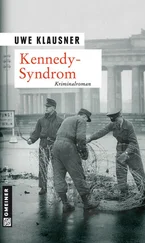William Kennedy - Ironweed
Здесь есть возможность читать онлайн «William Kennedy - Ironweed» весь текст электронной книги совершенно бесплатно (целиком полную версию без сокращений). В некоторых случаях можно слушать аудио, скачать через торрент в формате fb2 и присутствует краткое содержание. Жанр: Современная проза, на английском языке. Описание произведения, (предисловие) а так же отзывы посетителей доступны на портале библиотеки ЛибКат.
- Название:Ironweed
- Автор:
- Жанр:
- Год:неизвестен
- ISBN:нет данных
- Рейтинг книги:3 / 5. Голосов: 1
-
Избранное:Добавить в избранное
- Отзывы:
-
Ваша оценка:
- 60
- 1
- 2
- 3
- 4
- 5
Ironweed: краткое содержание, описание и аннотация
Предлагаем к чтению аннотацию, описание, краткое содержание или предисловие (зависит от того, что написал сам автор книги «Ironweed»). Если вы не нашли необходимую информацию о книге — напишите в комментариях, мы постараемся отыскать её.
Ironweed — читать онлайн бесплатно полную книгу (весь текст) целиком
Ниже представлен текст книги, разбитый по страницам. Система сохранения места последней прочитанной страницы, позволяет с удобством читать онлайн бесплатно книгу «Ironweed», без необходимости каждый раз заново искать на чём Вы остановились. Поставьте закладку, и сможете в любой момент перейти на страницу, на которой закончили чтение.
Интервал:
Закладка:
“Giddap,” Rosskam called out.
And the wagon rolled down the hill as the sun moved toward its apex, and the horse turned north off Colonie Street.
V
Tell me, pretty maiden, are there any more at home like you? There are a few, kind sir, and dum-de-dum and dum-dum too.
So genteel, so quaint.
Helen hummed, staring at the wall in the light of the afternoon sun. In her kimono (only ten-cent-store silk, alas, but it did have a certain elegance, SO much like the real thing no one would ever know; no one but Francis had ever seen her in it, or ever would; no one had seen her take it ever so cleverly off the rack in Woolworth’s): in her kimono, and naked beneath it, she sank deeper into the old chair that was oozing away its stuffing; and she stared at the dusty swan in the painting with the cracked glass, swan with the lovely white neck, lovely white back: swan was, was.
Dah dah-dah,
Dah dah-de-dah-dah,
Dah dah-de-dah-dah,
Dah dah dah,
She sang. And the world changed.
Oh the lovely power of music to rejuvenate Helen. The melody returned her to that porcelain age when she aspired so loftily to a classical career. Her plan, her father’s plan before it was hers, was for her to follow in her grandmother’s footsteps, carry the family pride to lofty pinnacles: Vassar first, then the Paris Conservatory if she was truly as good as she seemed, then the concert world, then the entire world. If you love something well enough, Grandmother Archer told Helen when the weakness was upon her, you will die for it; for when we love with all our might, our silly little selves are already dead and we have no more fear of dying. Would you die for your music? Helen asked. And her grandmother said: I believe I already have. And in a month she was very unkindly cut down forever.
Swan was, was.
Helen’s first death.
Her second came to her in a mathematics class at Vassar when she was a freshman of two months. Mrs. Carmichael, who was pretty and young and wore high shoes and walked with a limp, came for Helen and brought her to the office. A visitor, said Mrs. Carmichael, your uncle Andrew: who told Helen her father was ill,
And on the train up from Poughkeepsie changed that to dead,
And in the carriage going up State Street hill from the Albany depot added that the man had,
Incredibly,
Thrown himself off the Hawk Street viaduct.
Helen, confusing fear with grief, blocked all tears until two days after the funeral, when her mother told her that there will be no more Vassar for you, child; that Brian Archer killed himself because he had squandered his fortune; that what money remained would not be wasted in educating a foolish girl like Helen but would instead finance her brother Patrick’s final year in Albany Law School; for a lawyer can save the family. And whatever could a classical pianist do for it?
Helen had been in the chair hours, it seemed, though she had no timepiece for such measurement. But it did seem an hour at least since crippled old Donovan came to the door and said: Helen, are you all right? You been in there all day. Don’t you wanna eat something? I’m makin’ some coffee, you want some? And Helen said: Oh thank you, old cripple, for remembering I still have a body now that I’ve all but forgotten it. And no, no thank you, no coffee, kind sir. Are there any more at home like you?
Freude, schöner Götterfunken,
Tochter aus Elysium!
The day had all but begun with music. She left Finny’s car humming the “Te Deum”; why, she could not say. But at six o’clock, when it was still dark and Finny and the other man were both snoring, it became the theme of her morning pathway. As she walked she considered the immediate future for herself and her twelve dollars, the final twelve dollars of her life capital, money she never intended to tell Francis about, money tucked safely in her brassiere.
Don’t touch my breasts, Finny, they’re too sore, she had said again and again, afraid he would feel the money. Finny acceded and explored her only between the thighs, trying mightily to ejaculate, and she, Lord have mercy on her, tried to help him. But Finny could not ejaculate, and he fell back in exhaustion and dry indifference and then slept, as Helen did not, could not; for sleep seemed to be a thing of the past.
What for weeks she had achieved in her time of rest was only an illustrated wakefulness that hovered at the edge of dream: angels rejoicing, multitudes kneeling before the Lamb, worms all, creating a great butterfly of angelic hair, Helen’s joyous vision.
Why was Helen joyous in her sleeplessness? Because she was able to recede from evil love and bloodthirsty spiders. Because she had mastered the trick of escaping into music and the pleasures of memory. She pulled on her bloomers, slid sideways out of the car, and walked out into the burgeoning day, the morning star still visible in her night’s vanishing sky. Venus, you are my lucky star.
Helen walked to the church with head bowed. She was picking her steps when the angel appeared (and she still in her kimono) and called out to her: Drunk with fire, o heav’n-born Goddess, we invade thy haildom!
How nice.
The church was Saint Anthony’s, Saint Anthony of Padua, the wonder-working saint, hammer of heretics, ark of the testament, finder of lost articles, patron of the poor and of pregnant and barren women. It was the church where the Italians went to preserve their souls in a city where Italians were the niggers and micks of a new day. Helen usually went to the Cathedral of the Immaculate Conception a few blocks up the hill, but her tumor felt so heavy, a great rock in her belly, that she chose Saint Anthony’s, not such a climb, even if she did fear Italians. They looked so dark and dangerous. And she did not care much for their food, especially their garlic. And they seemed never to die. They eat olive oil all day long. Helen’s mother had instructed her, and that’s what does it; did you ever in all your life see a sick Italian?
The sound of the organ resonated out from the church before the mass began, and on the sidewalk Helen knew the day boded well for her, with such sanctified music greeting her at the dawning. There were three dozen people in the church, not many for a holy day of obligation. Not everybody feels obligations the way Helen feels them, but then again, it is only ten minutes to seven in the morning.
Helen walked all the way to the front and sat in the third pew of center-aisle left, in back of a man who looked like Walter Damrosch. The candle rack caught her eye and she rose and went to it and dropped in the two pennies she carried in her coat pocket, all the change she had. The organist was roaming free through Gregorian hymns as Helen lit a candle for Francis, offering up a Hail Mary so he would be given divine guidance with his problem. The poor man was so guilty.
Helen was giving help of her own to Francis now by staying away from him. She had made this decision while holding Finny’s stubby, bloodless, and uncircumcised little penis in her hand. She would not go to the mission, would not meet Francis in the morning as planned. She would stay out of his life, for she understood that by depositing her once again with Finny, and knowing precisely what that would mean for her, Francis was willfully cuckolding himself, willfully debasing her, and, withal, separating them both from what still survived of their mutual love and esteem.
Why did Helen let Francis do this to them?
Well, she is subservient to Francis. and always has been. It was she who, by this very subservience, had perpetuated his relationship to her for most of their nine years together. How many times had she walked away from him? Scores upon scores. How many times, always knowing where he’d be, had she returned? The same scores, but minus one now.
Читать дальшеИнтервал:
Закладка:
Похожие книги на «Ironweed»
Представляем Вашему вниманию похожие книги на «Ironweed» списком для выбора. Мы отобрали схожую по названию и смыслу литературу в надежде предоставить читателям больше вариантов отыскать новые, интересные, ещё непрочитанные произведения.
Обсуждение, отзывы о книге «Ironweed» и просто собственные мнения читателей. Оставьте ваши комментарии, напишите, что Вы думаете о произведении, его смысле или главных героях. Укажите что конкретно понравилось, а что нет, и почему Вы так считаете.












